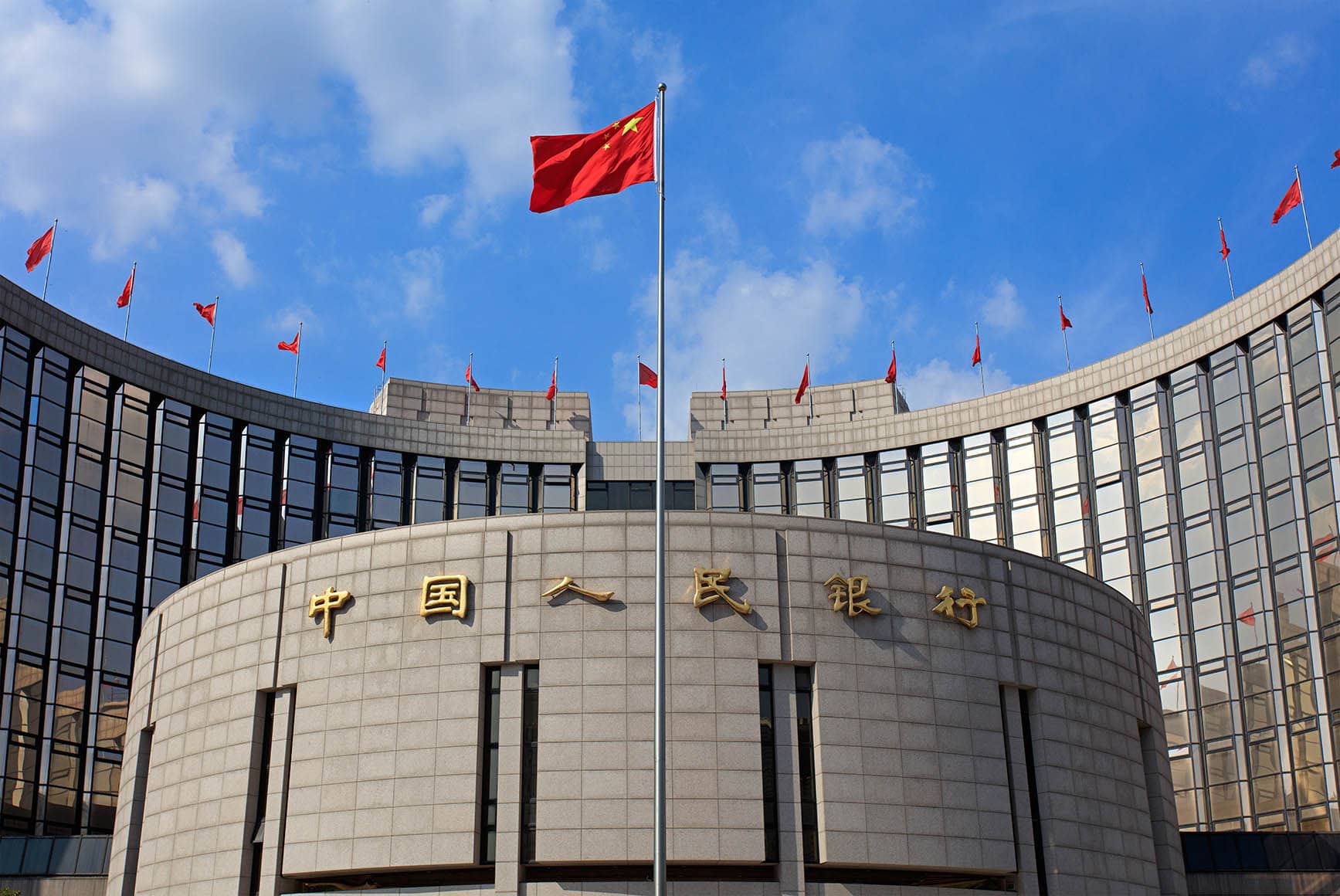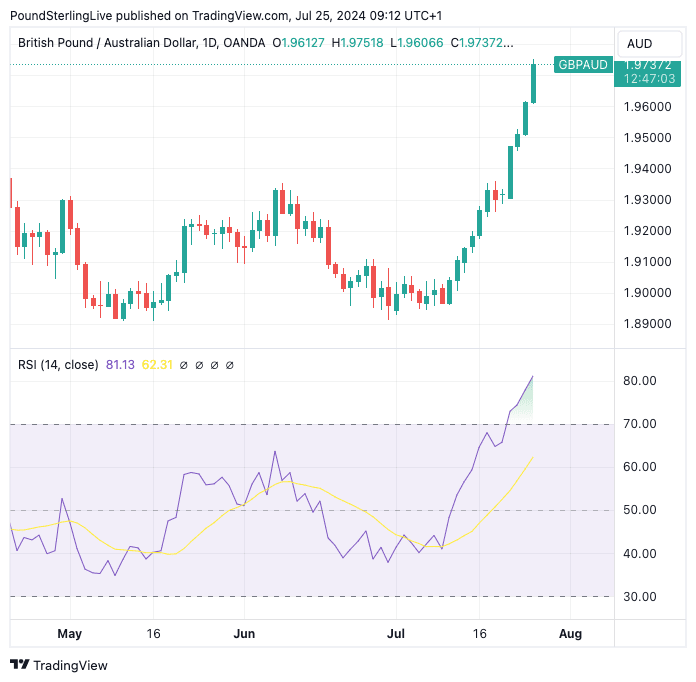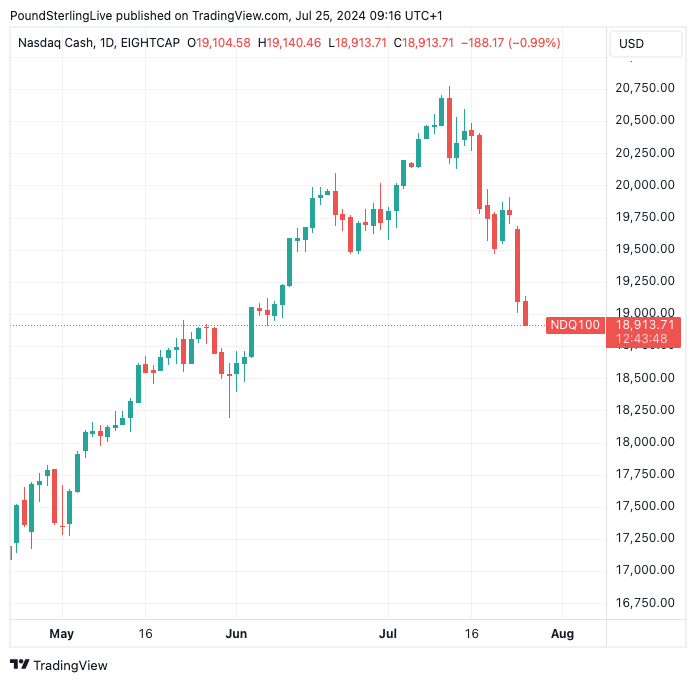
Image © Adobe Images
The sell-off in the Australian Dollar snowballed following yet another surprise interest rate cut at the People's Bank of China (PBoC) and a continuation of the 'carry trade' unwind centred on the Yen.
The Australian Dollar has extended losses after the PBoC unexpectedly cut the one-year medium-term lending facility (MLF) rate by 20 basis points. The MLF cut, the biggest since April 2020, follows Monday's cuts in several benchmark rates.
"China announced an off-cycle monetary policy easing on Thursday, adding to Monday's surprise series of rate cuts, in a relatively drastic move that could counter-intuitively hurt investor sentiment," says Ewen Chew, a Reuters market analyst.
The move is aimed at bolstering the Chinese economy, which is intuitively supportive of the Aussie Dollar. However, surprise moves can raise more questions than they answer.
"An immediate interest rate cut would not be the normal case and would therefore create the impression that things are terribly urgent," says Ulrich Leuchtmann, Head of FX and Commodity Research at Commerzbank.
The Australian-U.S. Dollar exchange rate (AUD/USD) is undergoing a chunky selloff, down 2.2% this week already, at 0.6535. "Spot down for fifth day, losses snowball to 2.2% for the week. Technicals oversold, bounce overdue," says Tanmay Purohit, a technical analyst at Société Générale.
The Pound to Australian Dollar exchange rate (GBP/AUD) is up 2.12% this week at 1.9727, which is the highest level since September.
As we noted in our Week Ahead Forecast, the GBP/AUD exchange rate is notably overbought and is due a correction. But the forces underway in global FX are powerful, and standing in the way of this train is of little use.

Above: GBP/AUD at daily intervals. The RSI indicator in the lower panel is screaming "overbought". Track GBP/AUD with your custom alerts; find out more here
The Australian and New Zealand Dollar have struggled amidst concerns over China as well as the significant unwind in the carry trade that is underway.
The resurgence in the value of the Japanese Yen has significant repercussions for global finance: over years investors have borrowed in Japan and shipped it to where interest rates are higher. One of the most popular 'carry' trades is to borrow in Japan and buy assets in Australia and New Zealand, where interest rates are traditionally higher.
This creates demand for AUD and NZD. However, with the Bank of Japan likely to raise interest rates again soon, JPY funds look more expensive than they once did.
"The yen has experienced some massive moves. AUD/JPY has dropped by more than 7% over the last two weeks, the largest drop since 2016," says George Saravelos, FX analyst at Deutsche Bank.
Complicating the picture are looming interest rate cuts in the U.S., New Zealand and maybe even Australia (early 2025), which diminishes the 'carry trade' even further.
In short, a gargantuan flow of money is moving away from AUD and NZD. When the flow eases and market sentiment improves, we would look for a sharp snapback in these two antipodean names.
Saravelos also thinks the JPY moves are linked to the prospect of another Donald Trump presidency. "We think the trigger behind the sharp JPY rally is the market’s re-assessment of the prospects of success of a soft dollar policy following President Trump’s interview in Businessweek last week where he explicitly mentioned the yen," he says.
Yet another development working against the Aussie and Kiwi Dollars is the sizeable stock market selloff seen over the past 24 hours, which would traditionally weigh on 'high beta' currencies, i.e. currencies that tend to rise when stocks rise and fall when the winds change.
The Nasdaq and S&P 500 had their worst single-day falls in percentage terms since 2022 after U.S. technology stocks sank and some hot air was released from the AI market hype.
Above: The Nasdaq has fallen sharply, weighing on pro-risk currencies.
Falls were led by Tesla, which saw stocks fall 12% after presenting mixed results for the year's second quarter.
"Markets saw a massive slump yesterday, as the combination of weak earnings and poor data hit investor sentiment. That led to some very big losses, with the Magnificent 7 (-5.88%) posting its worst day since September 2022," says Henry Allen, a strategist at Deutsche Bank.
"Equity markets were down across globe on Tuesday after results at two of the world’s largest tech stocks - Alphabet and Tesla - caused concerns that artificial intelligence isn’t yet sufficiently driving company earnings," says Shane Strowmatt, an analyst at LGT Private Banking.
So it will take a combination of recovering stock markets, easing China concerns and an end to the carry trade to unwind the oversold positions in AUD and NZD.

